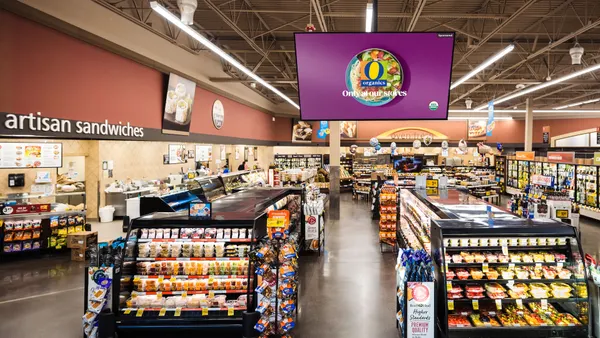Dive Brief:
- Hotels.com (40%), Trivago (34%) and Booking.com (34%) were the most-used travel sites over the past 12 months, according to a study by search intelligence platform Adthena provided to Marketing Dive. By comparison, 24% used Kayak and 21% used Cheapflights.
- The survey showed that well-crafted paid search campaigns can offer big returns, as 76% of consumers said they made purchases via the ads for their summer travel and more than half found them helpfuI. In planning summer trips, 37% of consumers said hotels were their top search, compared to 27% for local attractions and 25% for flights. Fifty-four percent of respondents used desktops for their travel searches, while 26% used mobile and desktop equally and 20% used only mobile.
- About 80% said they used search engines to plan their summer travel and 32% said they typically do four or more searches. Forty-six percent spent "a few days" using search engines before booking travel. Most consumers, or 76%, said they purchased summer travel from paid search ads, and 17% said they purchase from paid search ads "very often." More than half (51%) said paid search ads were "very helpful" or "somewhat helpful" for summer travel planning.
Dive Insight:
The Adthena survey suggests that, though mobile commerce is quickly growing along with advancements in smartphone technology, the path to travel purchases remains lengthier and more complex. The finding that just 20% of travel planning searches are done on mobile devices exclusively suggests that apps dedicated to the service aren't really taking off and that marketers in the space might want to think more about traditional digital techniques like paid search campaigns, which can be pricer but also pay off in a bigger way.
"Given how mobile-focused the industry has become over the past few years, this is definitely one of the most interesting findings in our study,” Ashley Fletcher, VP of marketing at Adthena, said in a statement around the mobile findings. "It goes to show that even though mobile is hot, the need for a multi-front approach to search is still pivotal to success."
This might be especially noteworthy for marketers creating campaigns targeting younger travelers. Even though 98% of Gen Zers own smartphones, and though the age group is viewed as being attached at the hip to mobile and social channels, 60% would rather make purchases on desktop, according to recent a study by UNiDAYS and Ad Age Studio 3.
The travel and hospitality industry is growing more competitive with the rise in digital disruptors like Airbnb, and marketers are realizing the need to incorporate more personalization and targeting to attract and retain customers. Search ads are expected to account for 42% of advertisers' total spending this year, reaching $95 billion, according to Zenith forecasts. Mobile has grown 25% this year to account for 60% of online ad spend and 24% of total ad spending, as desktop has declined 4%.










